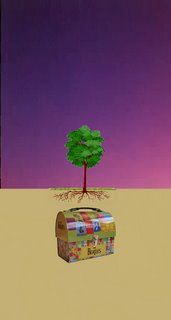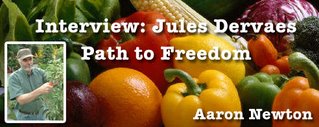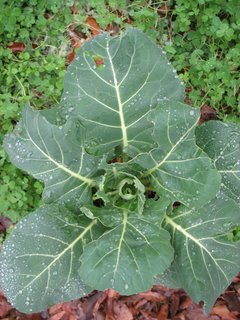 By now most people familiar with the concept of resource depletion, and more specifically peak oil, have heard the process of learning about energy descent described as a sort of grieving progression. You know, first there's denial and then anger and then bargaining, followed by depression and ultimately acceptance. Personally I find it a rather useful way to gage position when talking to other people about these tough issues. After only a few minutes it’s often possible to see where someone is in his or her own personal journey through the valley of reality. “Ah,” I’ve said to myself, “that woman is stuck solidly in the stage of anger.”
By now most people familiar with the concept of resource depletion, and more specifically peak oil, have heard the process of learning about energy descent described as a sort of grieving progression. You know, first there's denial and then anger and then bargaining, followed by depression and ultimately acceptance. Personally I find it a rather useful way to gage position when talking to other people about these tough issues. After only a few minutes it’s often possible to see where someone is in his or her own personal journey through the valley of reality. “Ah,” I’ve said to myself, “that woman is stuck solidly in the stage of anger.”In looking back on my own journey of coming to terms with a future that appears destine to be very different from all that was promised to me as a child, I am amazed at what has emerged as important as I’ve entered acceptance. Who would have thought that I would be so concerned with food? I mean I like food. I’ve eaten it my whole life. But growing lots more of it? And helping others to see food and food production as a pivotal issue in beginning to address peak oil, climate change, wide spread social injustice and the other issues brought on by run away empire? Not exactly how I thought I’d be spending my intellectual hours during midlife. Then again there is the fact that I’ve been digging apples seeds out of my lunch fruit since the days during which I carried it to school in a metal box. Come to think of it, I’ve been accused of living with, what many of my roommates (and my wife) have considered, “Way to many damn houseplants Aaron!” When a friend from university visited me recently, she walked by a table full of rooted cuttings only to exclaim, “Yup, that figures.” Yeah, I guess I have always been fascinated by plants, especially trees, who are able to grow from tiny seeds into enormous creatures without ever moving from the exact same spot where they first take root. Ok so my current fascination with growing plants, growing food and feeding ourselves isn’t so much of a stretch. In fact it’s something I’ve been interested in for so long it now seems common place as a central idea in my life. But agri/hort/perma-culture as a response to peak oil? In truth it’s been a wonderful way to focus my energy after having been released into this new place, a new world in which things are not as they appear, in which the future isn’t scripted and some of the most dreadful aspects of modern society seem set to collapse under the weight of complexity with a little help from a man named M. King Hubbert.
But before I go excessively romanticizing the upcoming great commotion, let me stop and say that there appear to be problems that will accompany this change in our relationship with energy, the environment and each other. All indications point to some serious, forthcoming problems. How we grow food and all the ripples we send out into our pond by doing so is one of them. We who have received advance notification are in charge of addressing them; or at least looking into the calamities before they become catastrophes and offering up possible solutions. What an awesome responsibility and maybe more than I was originally bargaining for in the wake of my own understanding of peak oil. None the less, here I am making my own change and helping others to make theirs.
At this moment my most pressing project is the book I am coauthoring with Sharon Astyk. She and I have decided to preview some of it on each of our own personal places on the dang ole internet; partially as a way to share news of our project with others, partially as a way to gather input & interest and partially just for fun. Her first excerpt is right here.
All snippets shared are in the process of being, “whipped into shape” for publication under a yet to be determined title. The general goal though is to shine a light at the dependence of industrial agriculture on fossil fuels while exploring the current disconnect between people and their food; not to mention the much needed renaissance in slow food cooking with whole food ingredients from the garden; all with an eye towards many more farmers as a way to address the above mentioned calamities. All indications are that changes in the 21st century could, should and just might mean that we will all get much more personal with the way we get our eats. It’s bound to be interesting.
What follows is the start of a discussion for the book on arable land, where can we expect to grow food and why.
On this typical, suburban street there's a space directly contiguous to the curb that creates distance between the whizzing cars and the relative safety of the sidewalk. It's a strip of grass seven feet wide.
 It is maintained by a homeowner who uses gasoline made from petroleum to mow it short, and nitrogen fertilizer made using natural gas to keep it growing tall. Weeds are kept under control by using pesticides that wash into the gutters and down the storm water system into creeks where they pollute the water supply of both humans and all other creatures down stream. The lots on this street are 100 feet wide creating 700 square foot green strips in front of each home. John Jevons, states that it's possible for even a modest farmer to raise 200 pounds of potatoes per year in a 100 square foot area. That's a possible 1400 pounds of potatoes per house. At 330 calories per pound that's a total of 462,000 calories or 45% of the calories necessary to sustain the average teenage male for entire year. If he really likes potatoes.
It is maintained by a homeowner who uses gasoline made from petroleum to mow it short, and nitrogen fertilizer made using natural gas to keep it growing tall. Weeds are kept under control by using pesticides that wash into the gutters and down the storm water system into creeks where they pollute the water supply of both humans and all other creatures down stream. The lots on this street are 100 feet wide creating 700 square foot green strips in front of each home. John Jevons, states that it's possible for even a modest farmer to raise 200 pounds of potatoes per year in a 100 square foot area. That's a possible 1400 pounds of potatoes per house. At 330 calories per pound that's a total of 462,000 calories or 45% of the calories necessary to sustain the average teenage male for entire year. If he really likes potatoes.It appears possible if you live on this street to reduce the amount of gasoline you use, reduce the amount of air pollution your dirty lawnmower belches out, reduce the about of natural gas used to make commercial fertilizers and reduce the amount of chemical pollutants in our water system all while growing almost half the calories your son will need for a year in an area that is not consider arable. I'm not really suggesting that this specific part of your plot is the best place to start actively cultivating land currently considered unfit for raising food. Or that man can live on potatoes alone. Maybe just the idea of starting to grow food in your front yard flower bed is enough (and you're going to want to add in some beans and tomatoes) but it does begin to suggest that our current definition of where we can grow food is in need of an update.
More...






